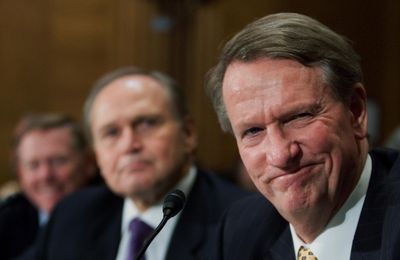Bailout for automakers may be hitting stop sign

WASHINGTON – Chief executives of the nation’s once-mighty Big Three automakers came to Capitol Hill on Tuesday to plead for $25 billion in federal aid, but the idea of bailing out Detroit has run into a wall of skepticism from a broad cross-section of lawmakers concerned about issues ranging from the environment and unions to Japanese auto plants in their home states.
Some see the issue through the prism of constituents who work in the industry – but not for General Motors, Ford or Chrysler. “I’m sure that I’m going to be asked, ‘Congressman, I work at Honda’ or ‘I work at Mercedes. I get $40 an hour,’ ” said Rep. Spencer Bachus, R-Ala. “Why are you going to take my tax dollars and pay it to a company that’s paying their employees $75 an hour?’ ”
Others, like Sen. Jim Bunning of Kentucky, oppose federal aid on ideological grounds.
A vote could come as soon as today. Many also contend that U.S. companies bear a lot of the blame for their problems.
“I am not going to turn my back on the working men and women of America,” said Rep. Joe Barton, R-Texas, , who is so proud of the GM plant in his district that he drives a Chevy Tahoe that was produced there. “However, throwing billions of taxpayer dollars at an ailing industry won’t necessarily cure the problem.”
Such views are especially frustrating for General Motors’ G. Richard Wagoner, Ford’s Alan Mullaly and Chrysler’s Robert Nardelli. The three CEOs appeared before the Senate Banking committee Tuesday and argued that the nation’s economic crisis threatens their companies’ survival just as they were finally adapting to the global marketplace with leaner operations and more fuel-efficient vehicles.
Wagoner told lawmakers that a refusal to act would further imperil the already battered American economy.
“This is all about a lot more than just Detroit,” Wagoner declared. “It’s about saving the U.S. economy from a catastrophic collapse.”